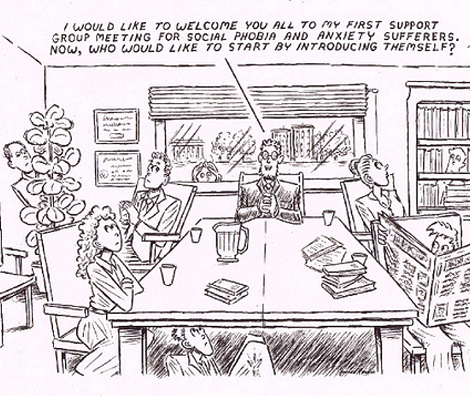Abstract
Social phobia (social anxiety disorder) refers to one of the most common anxiety disorders, with lifetime and 12-month prevalence rates to reach approximately 12 and 7% respectively. The disorder may appear early in life, especially during adolescence, it may comorbid with other anxiety, mood, and substance use disorders, while females seem to be more vulnerable in developing the disorder. Its key feature refers to the experience of excessive and persistent fear as elicited by social or performance evaluative situations leading to avoidance behaviors or to the experience of significant distress, consequently resulting in detrimental effects in one’s social, occupational and daily life. From a developmental perspective, temperamental traits and familial patterns seem to interact with environmental factors (such as overprotecting, over-controlling, and negative parenting styles, as well as aversive social experiences) accounting for the appearance and development of the disorder. Also, maladaptive cognitions and behaviors exhibited by people with social phobia contribute to the maintenance of the disorder. Finally, evidence-based efficacious treatments of the disorder are discussed, referring to medication (SSRI’s & Benzodiazepines) and therapeutic interventions (cognitive-behavioral therapies, interpersonal therapy, acceptance & commitment, and mindfulness-based therapies).






